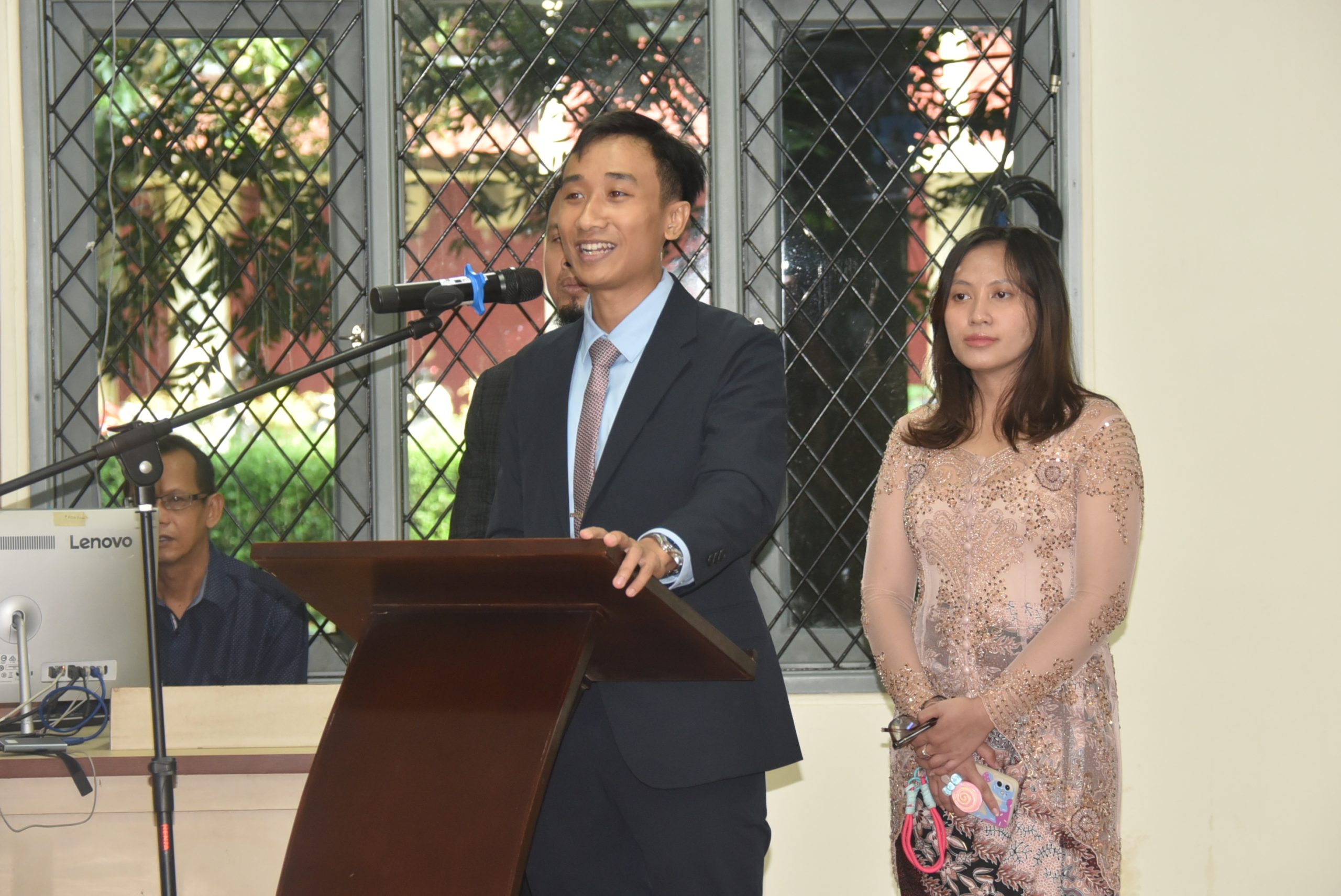On Monday, June 24, 2024, at the Doctoral Promotion Room, the Faculty of Public Health (FPH) at the Universitas Indonesia (UI) held the open defense for the Doctoral Promotion in Public Health Sciences (IKM) of candidate Ardhi Arsala Rahmani, presenting his dissertation titled “Climate Change and Shifts in the Malaria Disease Burden Pattern in Indonesia.”
The goal of the dissertation research was to uncover the relationship between climate change and shifts in the malaria disease burden in Indonesia, along with its implications. The research began with a simple question about what might happen if various meteorological indicators moved toward more extreme conditions than usual. The specific objectives of the study were to identify the relationship between climate variable changes and the malaria disease burden in terms of incidence across cities and districts in Indonesia, assess the potential implications for existing knowledge regarding climate and malaria, and examine the effects of confounding factors, such as socio-demographic changes, topography, and land use, on the association between climate variables and malaria incidence.
The research method employed by the candidate was Structural Equation Modeling (SEM) as a multivariate analysis method, aimed at introducing new methodology for processing multicollinearity variables, such as meteorological indicators, including temperature, rainfall, humidity, and wind speed. The results of the developed model analysis revealed that climate variables were associated with malaria incidence in a unimodal pattern.
However, the candidate emphasized that the association between the independent and dependent variables was relatively minimal compared to the confounding factors associated with socio-demographic changes, measured by the Human Development Index, household expenditures, and urbanization levels, as well as geographical conditions, including elevation levels and forest coverage. The dissertation research found that malaria incidence had a more significant association with multi-year climate variations in Indonesia, which was confounded by geographic changes.
“This dissertation reflects your deep attention to understanding climate change while introducing its concepts and implications for malaria control in Indonesia. Through a long and exhausting journey, you have succeeded in developing a structural model that can contribute to understanding long-term climate change science and malaria incidence, as well as helping policymakers recognize the importance of climate-resilient health systems and inter-institutional collaboration to address extreme climate events,” said Prof. Dr. dr. Sudijanto Kamso, S.K.M., during the inauguration ceremony of Dr. Ardhi.
At the end of the defense, the chairperson announced the decision that Ardhi Arsala Rahmani, who completed his studies in 6 semesters, was declared graduated and successfully obtained a doctoral degree in Public Health Sciences (IKM). He became the 19th doctoral graduate in IKM in 2024, the 315th IKM doctoral graduate, and the 404th FPH UI doctoral graduate, achieving a GPA of 3.94 with cum laude honors.
The defense was led by Prof. Dr. Besral, S.K.M., M.Sc.; Prof. Dr. dra. Dewi Susanna, M.Kes. as the supervisor; and Dr. Drs. Tris Eryando, M.A. as the co-supervisor. The examination committee included Dr. drg. Ririn Arminsih, M.Kes.; Dr. Suwito, S.K.M., M.Kes., Ermi Ndoen, Ph.D., and Dr. R. Azizah, S.H., M.Kes. (ITM)

